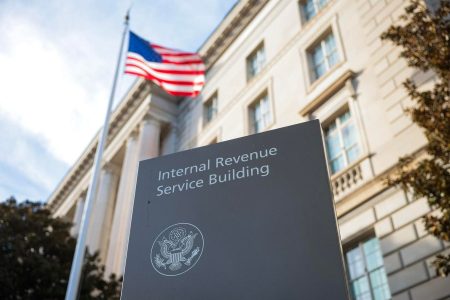The 2024 presidential election victory of Donald Trump, who campaigned on a platform of mass deportations, sent shockwaves through the stock market, particularly benefiting private prison companies like CoreCivic and GEO Group. Their stock prices surged dramatically, reflecting investor anticipation of a burgeoning market for detention services. This reaction mirrored a similar trend observed in 2004 when CoreCivic, then known as Corrections Corporation of America (CCA), celebrated the passage of the Intelligence Reform Bill, which promised a significant expansion of detention capacity. The bill’s focus on border security and increased detention beds aligned perfectly with the business model of private prison companies, foreshadowing the potential windfall they now anticipate under a Trump administration.
CoreCivic’s post-election investor calls reveal a company poised to capitalize on the expected surge in demand for detention facilities. Executives expressed confidence in the “value proposition” of the private sector in meeting the government’s needs, particularly those of Immigration and Customs Enforcement (ICE). They projected a substantial increase in the need for detention capacity and outlined their preparations for this anticipated growth. These preparations included ensuring adequate staffing, streamlining background checks and training processes, and securing capital expenditure for facility expansion. The company’s foresight in anticipating a shift in immigration policy underscores its strategic positioning to profit from an expansion of detention operations.
Beyond simply providing bed space, CoreCivic also highlighted its subsidiary, TransCor, as a potential provider of transportation services for ICE. This offering extends their reach into the logistics of deportation, encompassing both ground and air transport of detainees. The company’s readiness to provide these services paints a picture of a fully integrated approach to the detention and deportation process, maximizing their potential revenue streams from the anticipated influx of detainees. Furthermore, the timing of an ICE “Request for Information” (RFI) just a day after the election, seeking information on alternative detention contracts, was interpreted by CoreCivic as a strong signal of the government’s intent to expand its reliance on private contractors, further bolstering their optimistic outlook.
The financial performance of both CoreCivic and GEO Group underscores the lucrative nature of government contracts for detention services. CoreCivic reported a 4% revenue increase in 2023, driven largely by higher occupancy rates in their facilities. ICE contracts alone accounted for 30% of their total revenue, amounting to $552.2 million. Similarly, GEO Group, another major player in the private prison industry, saw a staggering 40% increase in revenue from ICE contracts in 2022, reaching a record $1.05 billion. These figures highlight the significant financial stakes involved for these companies and the potential for exponential growth should mass deportations become a reality.
The prospect of mass deportations, as envisioned by the Trump administration, raises significant logistical and financial challenges. With an estimated 13.3 million undocumented immigrants in the US, representing 3.3% of the population, the sheer scale of the undertaking is immense. The American Immigration Council estimates the cost of deporting this population over ten years at a staggering $967.9 billion. This figure includes not only the costs of apprehension and removal but also the enormous investment required to expand detention capacity. The current ICE budget allows for the detention of just 41,500 individuals, creating a massive gap between existing capacity and the potential demand under a mass deportation policy.
Bridging this capacity gap would necessitate a massive infrastructure project, involving the construction of an estimated 216 new 500-bed detention facilities each year for a decade. The American Immigration Council projects the cost of this construction at $728.3 billion, or an average of $66.2 billion annually, including both construction and maintenance expenses. This unprecedented level of spending would create a vast new market for private prison companies like CoreCivic and GEO Group, potentially transforming them into the primary beneficiaries of a mass deportation policy. Their proactive preparations and lobbying efforts suggest a clear understanding of this potential windfall and a determination to overcome any legal or political obstacles that might hinder their growth. The legal challenges mounted by GEO Group against state-level bans on private immigration detention contracts further illustrate their commitment to securing their position in this potentially lucrative market. These lawsuits, coupled with their aggressive expansion plans, indicate that private prison companies are betting heavily on the profitability of mass deportations, potentially at the expense of human rights and taxpayer dollars.










